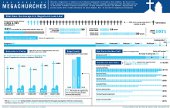Want cheaper tuition? Find religion
Body
Discussion
Should Laymen Be Allowed to Read the Bible? Part 1
 Reprinted with permission from As I See It. AISI is sent free to all who request it by writing to the editor at [email protected].
Reprinted with permission from As I See It. AISI is sent free to all who request it by writing to the editor at [email protected].
The problem stated
“If the average person is allowed to read and interpret the Bible for himself, isn’t he likely to misinterpret the Bible, and to misinterpret the Bible may have serious eternal spiritual consequences. Therefore, he dare not be allowed to interpret the Bible for himself, lest he err in his interpretation.”
The answer
I readily acknowledge that whenever people read and study the Bible for themselves they are guaranteed to misinterpret, misunderstand and misapply at least some of what they read. That is inevitable. But of course, the same is true if the same people read the newspaper, a textbook on chemistry or a magazine article on backyard gardening. Do we, then, forbid them to read and interpret these?
Does the fact of this certainty of to some degree misunderstanding the Bible, therefore, mean that either (1) the masses should not be allowed to have direct personal access to the Bible and/or (2) only authorized, authoritative interpreters of the Bible should be allowed to interpret for the rest of us what it means?
Some, such as the Roman Catholic Church, have appealed to 2 Peter 1:20 as proof of both of the assertions above. “No prophecy of the Scripture is of any private interpretation,” (emphasis added) is explained to mean that only Church authorities have the right to interpret the Scriptures and that all must follow that authoritative interpretation. However, in context, this verse is not speaking about those who read Scripture, but those who wrote Scripture. Verse 21 continues, “but being carried along by the Spirit, men spoke from God.”
Discussion
Is Santa coming to town and church? What is your church's (or pastor's) stance?
Poll Results
Is Santa coming to town and church? What is your church’s (or pastor’s) stance?
Actively speaks out against celebrating Christmas with Santa in any way Votes: 1
Okay if treated as a myth Votes: 1
Issue generally avoided (not brought up by pastor or leaders), but no Santa at church Votes: 13
No problem with Santa at all, but Santa still not allowed in church functions Votes: 3
Santa can come to church Votes: 0
Other Votes: 1
Discussion
Making Lemonade out of Lemons
Discussion
Christmas is on Sunday this year. What is your church doing?
Poll Results
Christmas is on Sunday this year. What is your church doing?
Discussion
Which schedule MOST closely fits your churches standard practice? (not counting home flock or study groups); please discuss
Poll Results
Which schedule MOST closely fits your churches standard practice? (not counting home flock or study groups); please discuss

Discussion